We had the opportunity to meet with our state senator, Kirk Pearson, this evening in Marblemount to discuss the Barnaby Reach project. He listened well and asked that we follow promptly with a summary of our conversation so he could refer to it tomorrow in his meeting with the head of the Washington Department of Fish and Wildlife. Here is our letter to Senator Pearson:
11:00 p.m., Sunday, May 16, 2016
Dear Senator Pearson,
Thank you for discussing the Barnaby Reach project with us this evening. Per your request, here is a summary of our conversation.
Many of our Rockport neighbors share our serious concern about this salmon habitat project just upstream of our residential and farming neighborhood in Rockport. While we support the goal of improving salmon habitat, we see aspects of this proposed project which constitute potentially catastrophic danger for our homes, farms and properties.
As you know, the Washington Department of Fish and Wildlife, The Nature Conservancy, and Seattle City Light have endorsed an initial plan by the Skagit River System Cooperative which would modify the environment in our area for the purpose of improving salmon habitat. I shared with you that our greatest concern relates to the construction of a long, deep, wide channel intended to divert Skagit River flow through the Barnaby Slough. We see this proposed channel as an invitation to the Skagit River to change course across our gently sloping valley floor toward homes and properties now relatively safe from flooding.
There is a long history in our area of the Skagit River shifting direction and we don’t want anything done which would invite it to come across the valley and possibly consume us. The Skagit once flowed south and then back northwestward, in the late 1800’s, then in a flood event around 1908 it moved north to flow in a more or less straight direction. The channel would invite the river to flow southwestward again and in the event of certain circumstances, some unknown, the river could shift again in our direction. The creation of the channel opens the door to many harmful events which cannot be reliably predicted and, therefor, we steadfastly oppose its creation.
We see the channel as a precursor for what are referred to as “black swan” events, unknown and unknowable events of a catastrophic nature which would not likely occur if the channel was not constructed. The literature on such events notes that the most devastating consequences tend to be associated with black swan events. We only understand them after the fact; the Oso slide may be an example of this sort of thing. We do not want a channel to be constructed which would enable or facilitate an unexpected or unanticipated shift in the Skagit River.
Environmental modeling is a highly unreliable activity which both cannot replicate reality or predict future environmental behavior. The literature is clear about this. Modeling is a simplified portrayal of reality and has been repeatedly demonstrated to be sorely lacking in predictive validity. Our collective desire for certainty in making environmental decisions lures us into unjustified confidence in apparently sophisticated models, but the fact is that they cannot give us confidence that catastrophic public safety disasters will not occur.
We also discussed the importance of employing highly conservative evaluation criteria to any environmental project planned in an area in close proximity to residential communities like ours. Historically, the 100-year flood history has been employed to evaluate projects. Given known climate change realities, historical 100-year flood conditions are no longer reliable conditions for evaluating environmental projects, especially where people live and work. We would like to see legislative steps to assure that projects like this are subjected to evaluation criteria appropriate for our geographic situation and the new age of climate change.
We’ve written several pieces for our website, skagitupriverneighbors.com, which speak to the points we’ve covered here. We’ve tried to set forth our point of view about aspects of this project which concern us and invite everyone interested in this project and our community’s well-being to read what we’ve published.
Thank you for listening so well to what we had to share with you. We’d be happy to meet with you and your staff regarding this matter. We appreciate your desire to represent our best interests.
Regards,
Dave Hallock and Melinda Hews
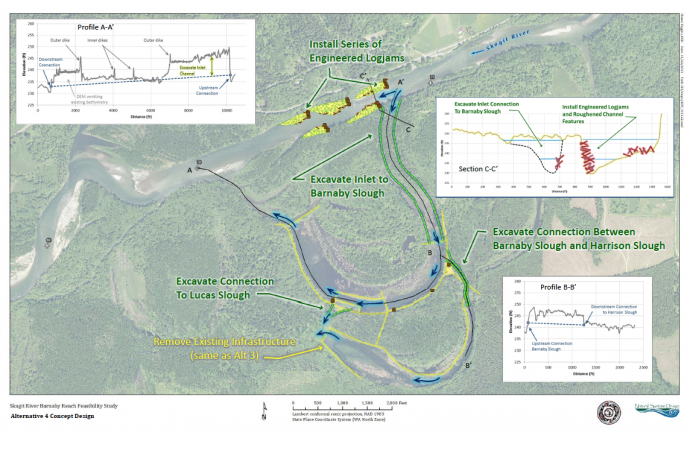
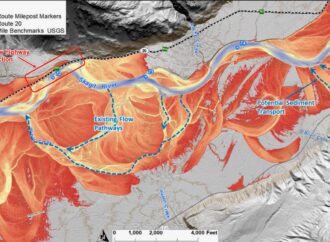
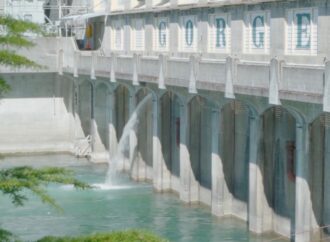

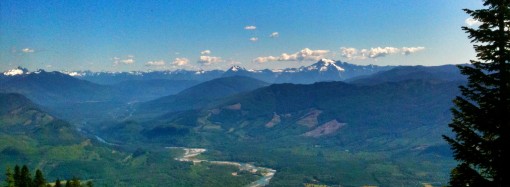
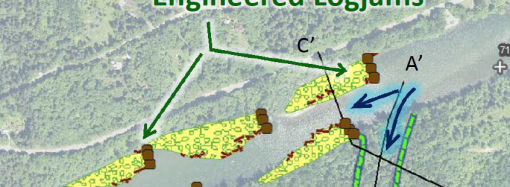
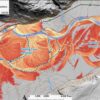

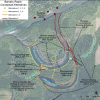
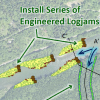
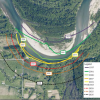
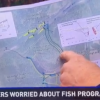
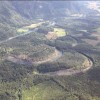
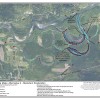
Leave a Comment
Your email address will not be published. Required fields are marked with *